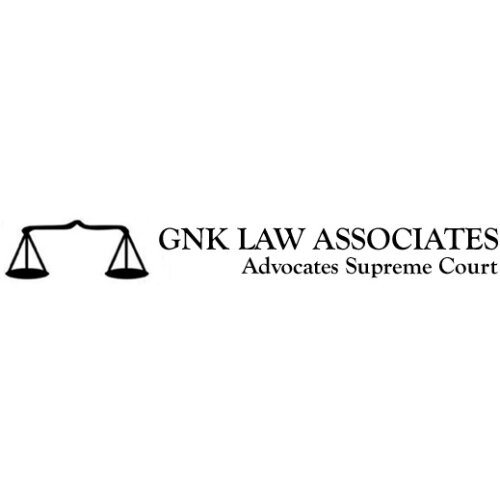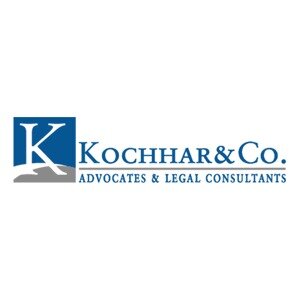Best Water Law Lawyers in Delhi
Share your needs with us, get contacted by law firms.
Free. Takes 2 min.
List of the best lawyers in Delhi, India
About Water Law in Delhi, India
Water Law in Delhi, India, encompasses the legal frameworks and regulations governing the use, management, distribution, and protection of water resources in the National Capital Territory. Given Delhi’s complex demographic growth, industrial activities, and increasing demands on water sources like the Yamuna River and groundwater reserves, water law plays a critical role in ensuring equitable access and sustainable management. The field includes statutes, judicial decisions, and policies related to water rights, pollution control, water supply, rainwater harvesting, groundwater extraction, and dispute resolution between different stakeholders, such as residents, businesses, and government agencies.
Why You May Need a Lawyer
Legal advice in the area of Water Law becomes essential for various reasons in Delhi. Individuals, housing societies, companies, and NGOs may need assistance when facing:
- Disputes over water supply or water rights among residents or between consumers and local authorities.
- Issues related to illegal groundwater extraction or connections.
- Non-compliance allegations concerning rainwater harvesting, waste water treatment, or pollution norms.
- Challenging penalties or notices from agencies like the Delhi Jal Board or Delhi Pollution Control Committee.
- Filing Public Interest Litigation (PIL) regarding contamination of water bodies or environmental damage.
- Advice on regulatory approvals for construction, particularly for borewells or water intensive industries.
- Disputes involving allocation, diversion, or shortage of water supply during infrastructure development projects.
A qualified Water Law lawyer can help interpret complex regulations, represent you in court or administrative hearings, draft legal documents, and facilitate negotiations with government bodies.
Local Laws Overview
Delhi’s approach to water law is governed by a combination of national statutes, state acts, municipal regulations, and judicial pronouncements. Key local frameworks and bodies include:
- Delhi Jal Board Act, 1998 - Governs water supply and sewage management services in Delhi through the Delhi Jal Board (DJB).
- Delhi Water and Sewer (Tariff and Metering) Regulations - Details metering, billing, tariffs, and legal procedures for addressing unauthorized connections or arrears.
- Delhi Ground Water Regulation Act, 2002 (implemented via Central Ground Water Authority) - Regulates borewell installations and groundwater extraction, with permits required for non-domestic extraction.
- Environment (Protection) Act, 1986 and Water (Prevention and Control of Pollution) Act, 1974 - Empower the Delhi Pollution Control Committee to enforce measures against water pollution by industries or local bodies.
- Bylaws on Rainwater Harvesting - Mandate installation of rainwater harvesting structures for certain buildings, monitored by the DJB and other civic authorities.
- Orders from Delhi High Court and National Green Tribunal - Establish guidelines and penalties regarding river pollution, waste management, and environmental compliance.
Compliance with these laws is crucial, as violations can result in fines, disconnections, or even criminal prosecution depending on severity.
Frequently Asked Questions
What are the main government agencies involved in water management in Delhi?
The Delhi Jal Board (DJB) handles water supply and sewage, the Delhi Pollution Control Committee (DPCC) oversees pollution matters, and the Central Ground Water Authority (CGWA) regulates groundwater extraction.
Is it legal to install a private borewell in Delhi for domestic use?
No, installing a new borewell without permissions is illegal in most parts of Delhi. Existing borewells require registration with the Delhi Jal Board, and commercial extraction is heavily regulated by the CGWA.
Can a housing society refuse to supply water equally to all residents?
No, equitable water distribution is required by law. Residents facing discrimination or unequal supply can approach the DJB, local authorities, or file civil complaints.
What should I do if I receive a notice from the DPCC about water pollution?
You should consult a lawyer immediately, review the alleged violations, prepare a factual response, and, where possible, rectify the issue to avoid penalties or prosecution.
Are rainwater harvesting structures mandatory in Delhi?
Yes, for buildings with an area of 500 square meters or more, and in many group housing societies and commercial complexes, installation of rainwater harvesting systems is mandatory.
What penalties can arise from unauthorized water connections?
Penalties can include heavy fines, disconnection of water supply, criminal prosecution for repeat offenders, and recovery of dues by the DJB.
How can industries obtain clearance for effluent discharge?
Industries must apply for consent from the DPCC and comply with all pollution control norms set by the Water Act, including treatment of wastewater before discharge.
What recourse do residents have regarding water shortages?
Residents can lodge complaints with the DJB, approach the Consumer Forum for deficiency in services, or seek judicial intervention if shortages are severe and persistent.
Can I challenge arbitrary water tariffs or incorrect billing by the DJB?
Yes, disputes related to tariffs and billing can be contested through a formal complaint with the DJB or escalated to relevant consumer redressal forums.
How does the law address contamination of the Yamuna River?
Pollution of the Yamuna is regulated by multiple laws, court orders, and DPCC directives. Individuals or groups can file petitions, and polluters are subject to strict fines and remediation orders.
Additional Resources
Individuals and organizations seeking further information or assistance can consult the following key resources:
- Delhi Jal Board (DJB) - Manages water supply, sewage, and customer grievances.
- Delhi Pollution Control Committee (DPCC) - Handles water and environmental pollution matters.
- Central Ground Water Authority (CGWA) - Issues permissions and monitors groundwater extraction.
- Consumer Redressal Forums - For addressing grievances against utility providers.
- Delhi High Court Legal Services Committee - Offers guidance for filing PILs or public interest cases.
- Local Environmental NGOs - Many provide information and support regarding water conservation and legal rights, such as Yamuna Jiye Abhiyan or WaterAid India.
Next Steps
If you are facing a water law related issue in Delhi, begin by documenting your problem and gathering any correspondence or notices received from authorities. Consult a specialized Water Law lawyer or a legal aid organization to interpret your case and suggest the best course of action. You may need to file formal complaints, respond to legal notices, or seek interim relief from courts if the matter is urgent. Legal professionals can assist in preparing your documentation, representing you before authorities or courts, negotiating settlements, and ensuring your rights are protected under the law. Early action and proper legal guidance are crucial in resolving water law matters efficiently and lawfully.
Lawzana helps you find the best lawyers and law firms in Delhi through a curated and pre-screened list of qualified legal professionals. Our platform offers rankings and detailed profiles of attorneys and law firms, allowing you to compare based on practice areas, including Water Law, experience, and client feedback.
Each profile includes a description of the firm's areas of practice, client reviews, team members and partners, year of establishment, spoken languages, office locations, contact information, social media presence, and any published articles or resources. Most firms on our platform speak English and are experienced in both local and international legal matters.
Get a quote from top-rated law firms in Delhi, India — quickly, securely, and without unnecessary hassle.
Disclaimer:
The information provided on this page is for general informational purposes only and does not constitute legal advice. While we strive to ensure the accuracy and relevance of the content, legal information may change over time, and interpretations of the law can vary. You should always consult with a qualified legal professional for advice specific to your situation.
We disclaim all liability for actions taken or not taken based on the content of this page. If you believe any information is incorrect or outdated, please contact us, and we will review and update it where appropriate.












